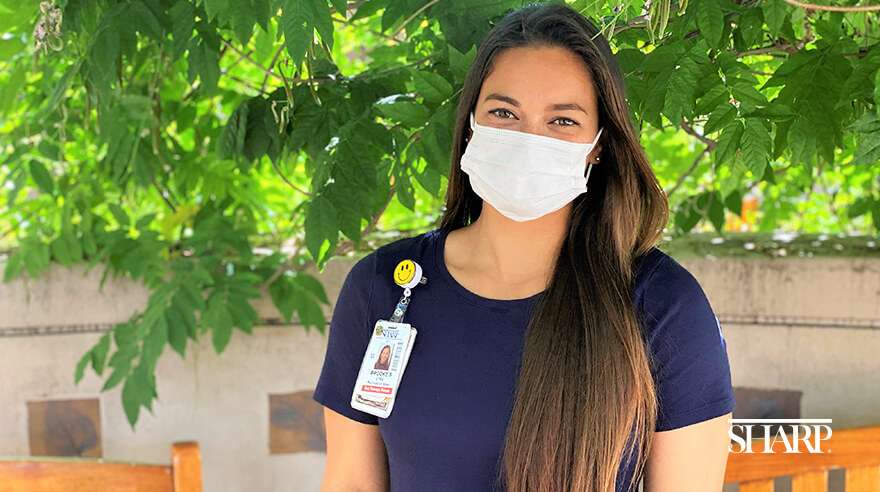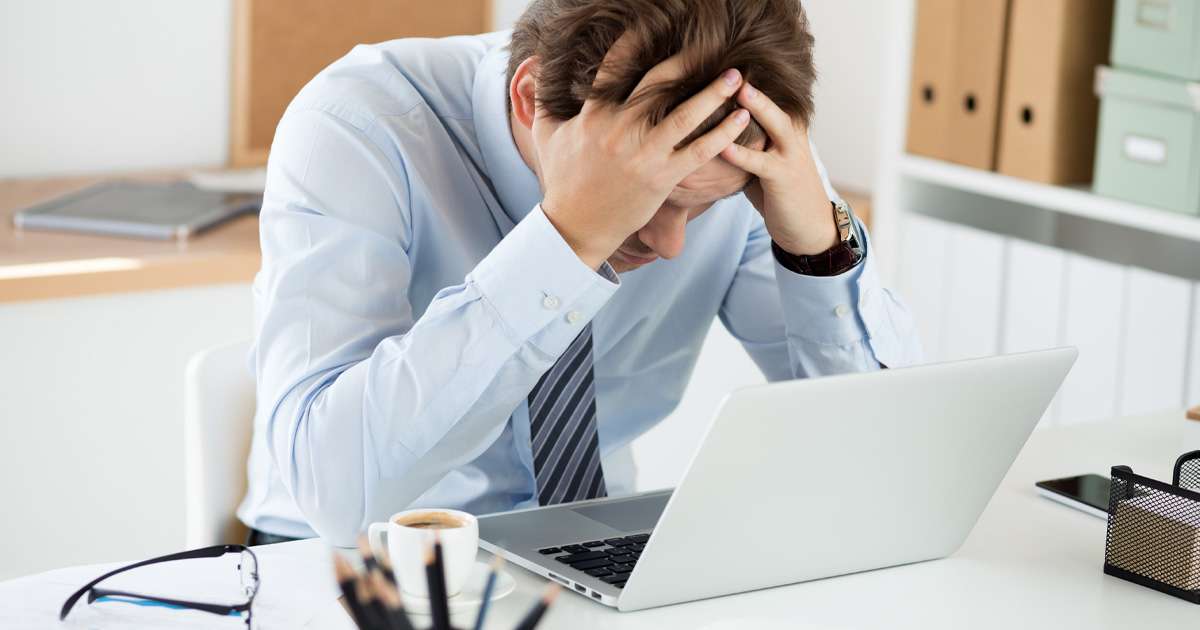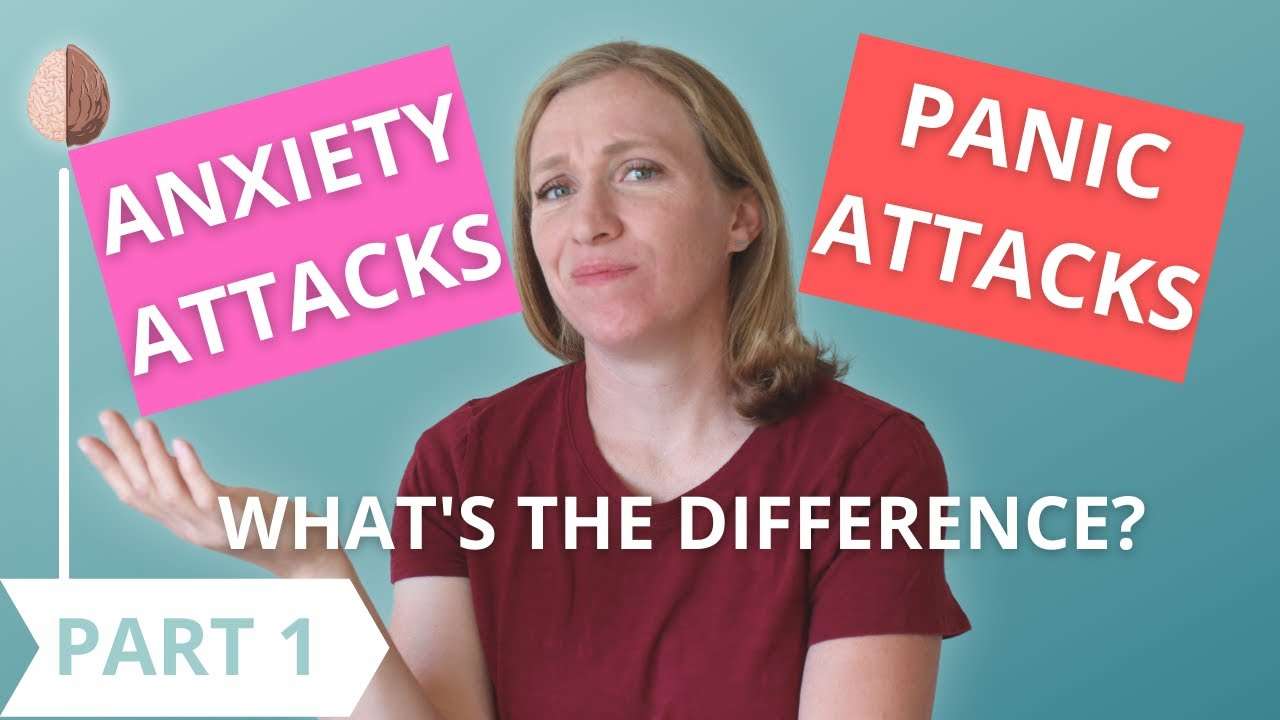Brooke Scholl decided to become a recreational therapist specializing in mental health when she recognized the healing impact that leisure and recreational activities, such as hiking, soccer and yoga, had on her own personal setbacks and difficulties in life.
In college, Scholl worked as an intern at Sharp Mesa Vista Hospital and eventually became a full-time therapist after working across multiple Sharp hospitals per diem.
“I aspire to help others live a healthier, connected and fulfilling life, and this job allows me to do that,” she says. “I get the opportunity to inspire others to reconnect with enjoying life.”
Scholl hopes to empower people with mental health issues through recreational activities that can help improve physical, social, spiritual and emotional well-being.
What does a recreational therapist do?
Providing services 365 days a year to all seven inpatient units, the recreational therapists of Sharp Mesa Vista offer group and one-on-one sessions focused on wellness, creative expression, life skills, leisure education, self-esteem and more.
Scholl typically leads two to four groups each day, and chooses activities that focus on improving concentration, self-awareness, coping skills, goal setting and stress management.
In light of COVID-19 safety precautions, Sharp Mesa Vista has limited group sizes to encourage social distancing, allowing for more outdoor and one-on-one time. The recreation therapy team has also increased in-room treatment options, such as puzzles, reading materials, and art and craft packs.
How does recreation help improve mental health?
For patients dealing with mental illnesses such as depression, anxiety, schizophrenia and bipolar disorder, therapeutic interventions — ranging from simple cognitive and physical exercises to activities that focus on self-reflection, time management and sober leisure awareness — can help manage symptoms.
Patients are also given the opportunity to practice social skills and improve their mood through fun activities such as karaoke, jewelry making, video game bowling and virtual tours.
“I’ll never forget the time a patient came up to me after a group, and with tears in her eyes, thanked me for showing her how to have fun again,” says Scholl. “It was a moment I continue to cherish.”
Integrating recreational therapy into your own life
“We all experience stress in life, but we do not always react to it in a way that is best for us,” Scholl says. “I have learned how to use recreational and leisure activities, as well as positive coping skills, to help me react to stress in a healthy way.”
Here are some activities Scholl uses at work and home.
-
Guided stretching and exercise
“Staying active is a healthy way to relax and manage stress and anxiety,” says Scholl. “Often I incorporate meditation, progressive muscle relaxation, grounding techniques and deep breathing to show how mindfulness can support long-term wellness and recovery.”
Other therapeutic activities include nature walks, chair yoga, light weight training, dancing, hula-hooping, ping-pong and bocce ball. -
Practice your version of self-care
Not all self-care involves buying something new or treating yourself to chocolate. Find what helps you relieve stress in a healthy way. To relax after a long day at work, Scholl often listens to a podcast, goes surfing, cooks meals with a loved one or does yoga. -
Play games
Playing games can help any group with social connection, teamwork and motivation, while promoting cognitive skills. Sharp Mesa Vista recreational therapists have adapted games such as Scattergories by creating their own lists of health and wellness categories. Other games that have been adapted include Boggle, charades and Pictionary, to focus more on coping skills. -
Make social connections
“Life is all about relationships and connections. I have come to understand that when we are disconnected from people or things we are interested in, that’s when life often becomes more difficult,” says Scholl.
She recommends taking the initiative to contact a family member or friend to make future plans that you can look forward to. You can start your own game night, plan a day trip, cook a meal together over video chat or go for a walk together.
Learn more about mental health services at Sharp Mesa Vista Hospital and read important COVID-19 information from Sharp. As part of our efforts to keep you safe, we are offering teletherapy and virtual care programs that provide continued access to care. Admissions continue to be in person, so that we can assess patients for their individual care needs.
Productive Leisure Activities – Oxymoron or Effective Therapy?
August 01, 2019
Leigh Spada, LRT/CTRS
Recreational Therapist, HopeWay
What are Leisure Activities or Productive Leisure Time?
When you hear the term “leisure time” and “productive leisure” – what comes to mind? Do you think of tasks like mowing the lawn on a day off? Perhaps completing a major scrapbook activity with a group of friends. Or maybe you’re a water bug, like me, who enjoys reading a book while dipping your toes in the lake.
When I talk with clients about leisure, I help them understand that leisure activities are unobligated. It involves anything you want to do (within reason) simply because it is fun or evokes happiness.
An unfortunate reality of mental illness is that it tends to take away the desire to do anything enjoyable.
As the recreational therapist at HopeWay, part of my job is to help clients regain that sense of fun and incorporate it into their daily routines. Many people have the misunderstanding that this work only consists of fun and games or individualized workout plans.
In reality, each activity I prepare leads to a deeper conversation on topics such as the importance of healthy social interactions or how to develop strong communication skills. Through these lessons, clients learn how to use leisure activities as coping mechanisms. Whether through volleyball, Jenga, basketball or badminton, I take a fun, normal activity that can be accessed in everyday life, and add a therapeutic undertone to it.
Recreational Therapy is just one piece of the puzzle that makes HopeWay’s holistic treatment so effective and applicable in clients’ lives post treatment. It is an evidence-based therapy that addresses an issue many people with mental health challenges face of leading sedentary and isolated lifestyles.
For instance, you may know someone who goes through the motions of their job or responsibilities at home on a daily basis, and you think they’re doing fine and have all their ducks in a row. But what you may not see is that they’ve ceased going for walks at the end of the day, they’ve stopped playing with their dog, they’re making excuses for not going out with friends, all of which result in an unhealthy state of isolation.
Here are a few group leisure activities that focus on teamwork, healthy social skills, and communication.
Therapy Jenga
One of the tools we use is Therapeutic Jenga. Each piece is associated with a question that prompts a group discussion which allows clients to practice social skills. By engaging in this activity, clients are also able to work on their distress tolerance skills especially when the tower is leaning. At that point, the expectation is that the tower will fall and a client may become anxious. This presents a great opportunity for the client to practice skills they have been learning at HopeWay to cope with the anxiety they may be experiencing.
Telephone / Pictionary
This game is essentially a combination of Telephone and Pictionary. The first person in the circle is given a secret word. They have to write that word down and pass it to the person next to them. That individual has to then draw the word and pass the illustration along to the next person who writes down what they think the picture is depicting. This process repeats all the way around the circle. The last person is tasked with guessing what the word is after it has been written and illustrated a few times by different people.
The underlying message that this game conveys is how easily something can get misconstrued when you engage in either verbal or nonverbal forms of communication with others.
Volleyball
Another great activity is volleyball. Even though we don’t keep score while playing, we often have the opportunity to work on skills like team building and stress tolerance. There may be one client who is very talented at playing volleyball, but another member on their team is not so coordinated. Both clients have to understand that they are on the same team, and thus they need to figure out how to work together in a competitive situation even though they have different abilities.
Situations like this allow clients to practice the processing skills they’ve been learning in other group and integrative therapy sessions.
For example, someone may confess that a certain activity is making them anxious. So we’ll take a break from the activity and discuss how we would cope with those feelings of anxiousness if we were in the real world. My main goal is to help clients strategize how they can apply the lessons they’re learning at HopeWay to their everyday life.
As clients near the completion of their treatment, we work together to identify games, activities, or hobbies that bring them a sense of joy. I ask what they like to do for fun, and then we brainstorm different ways that the client can plug into these interests once they return home. We keep an eye on opportunities and events they can sign up for in their respective hometowns.
Community reintegration is key so that clients don’t go from the routine of treatment to nothing.
During these conversations, we may uncover some unhealthy leisure habits that need to be addressed. One client in particular tried to justify their habit of playing video games all day because they were on their headphones talking with other gamers. I had to explain to them that healthy interactions with others involves face time.
Now, don’t get me wrong. We’ve all experienced those times where it’s been a really long day at work. You weren’t as productive as you wanted to be. Maybe you got called out for a mistake you made, or your to-do list just felt like kudzu and you are worn out. In these cases, if you want to come home and chill on the couch while enjoying a few episodes of The Office or Friends and just laugh, that’s totally fine!
There’s a difference between doing something just “me, myself and I” to recharge your batteries, and avoiding human interaction for an extended amount of time.
Popular activities like Netflix and video games only become our enemies when they cause us to become couch potatoes who don’t do anything at all. If a client goes home on Friday, orders a pizza and proceeds to sit on their couch or bed all weekend without getting up, showering, eating well, going outside or socializing with others, that’s when we need to have a discussion about healthy versus unhealthy leisure time.
When discussing isolation with clients, we talk about how to identify signs and triggers that may indicate they’re starting to isolate. Personally, I’ll catch myself no longer taking phone calls from my best friend or my mom when that’s usually a normal part of my day. It’s important to be aware of these patterns so you can prevent yourself from sliding down a slippery slope into isolation.
The healthy productive leisure habits that you develop for general weeknight and weekend plans can also be applied to extended periods of time away from work or home-life responsibilities. Especially during this time of the year, many people travel to the beach or mountains while others enjoy a simple, yet restorative, staycation right in their own cities.
My advice for you stay-cationers would be to really take time to think about what you like to do, and then make a plan. You’ll always have a more enjoyable staycation when you create a flexible schedule instead of flying by the seat of your pants.
When we are home and “off-duty” from work or other obligations, it’s easy to fall into thoughts like, “Well, I have the day off, so let me cut the grass or complete some household chores that need to get done.”
Some people just go-go-go during the week, then continue that same mentality on their days off. This can lead to burnout.
If you know you’re that kind of person, plan your staycation accordingly. Say to yourself, “When I get up, I’m going to spend 3 hours doing yardwork. But after that, I’m going to do something for myself.”
The trick is, you have to know what that something is. Because if you don’t, you may end up just sitting in your room thinking, “I haven’t seen the newest season of Stranger Things yet. Let me turn that on.” It is very easy to get sucked in to hours of screen time when scrolling through social media or succumbing to Netflix’s autoplay feature.
Again, it’s not bad if you want to carve out time to watch a movie you’ve been dying to see, or catch up on an episode or two of your favorite show. Just be intentional about balancing it out with other healthy habits.
Don’t worry about being at a loss for creative things to do with your time off. When planning a staycation, take a look at what you can do right in your own backyard.
Staycations provide an excellent opportunity to be a tourist in your own city.
Here are some staycation ideas to try in Charlotte, NC:
- Make a reservation at a restaurant you’ve never visited before (Resources like Charlotte Agenda have great suggestions for up-and-coming restaurants)
- Try an activity at the White Water Center
- Engage your sense of adventure at Carowinds
- Rent a boat at Lake Norman
- Try a new recipe at home (doesn’t have to be Pinterest-perfect!)
- Visit your local library and check out a good book or two
- Rent a tube in Shelby and float down the river
- Go hiking in Asheville
- Complete a puzzle that you can frame in your house
- Go for a bike ride on a park trail
To get things started, make a list that you can reference whenever you come across white space in your calendar. It can be easy for a conversation to turn into, “What do you want to do? Well I don’t know…what do you want to do?”
And around and around we go, like the cartoon vultures in Jungle Book. But if you have a list that you’ve already thought about and created beforehand, you can enjoy productive leisure time – either during a staycation or on general weekends off from work.
Spend some time thinking through what your productive leisure habits currently look like, and identify one thing you can do today to bring a sense of fun and enjoyment to your routine.
Learn More About Recreational Therapy
Editor’s note: This blog post is presented for informational purposes only and is not meant to diagnose or treat any illness. If you have any health concern, see a licensed healthcare professional in person.



